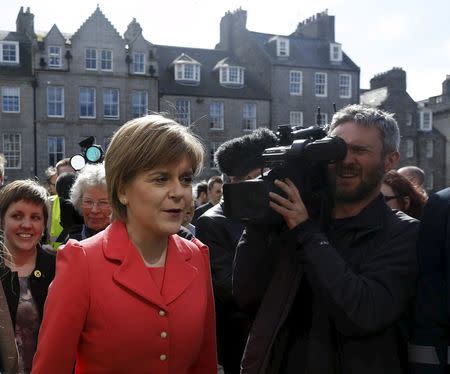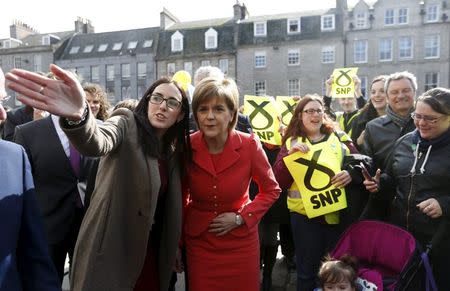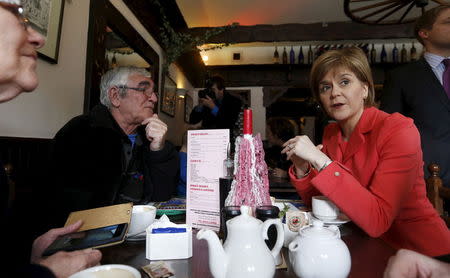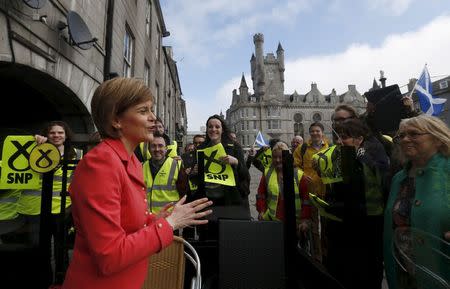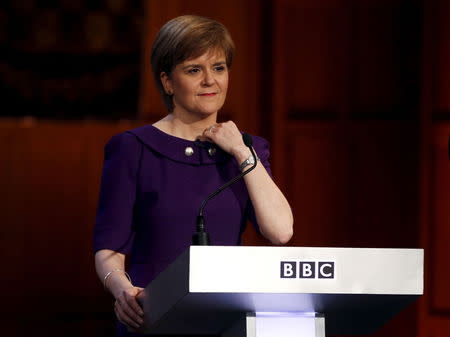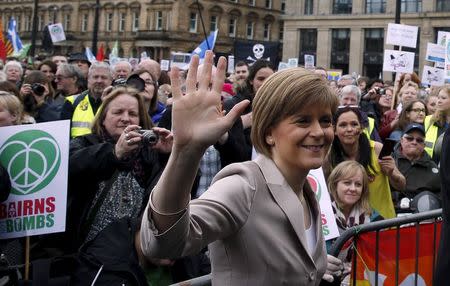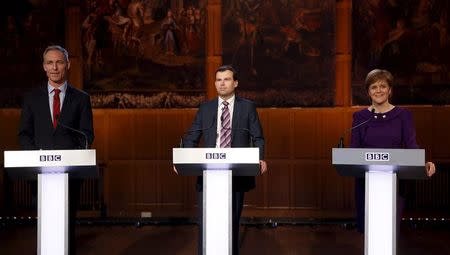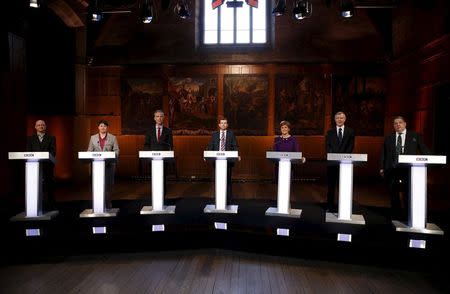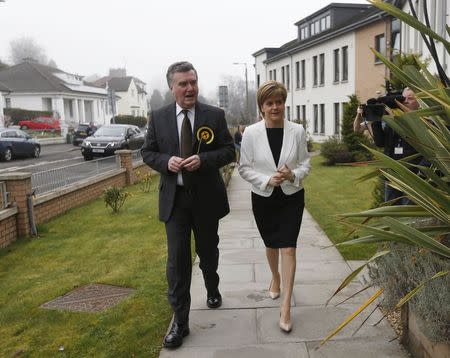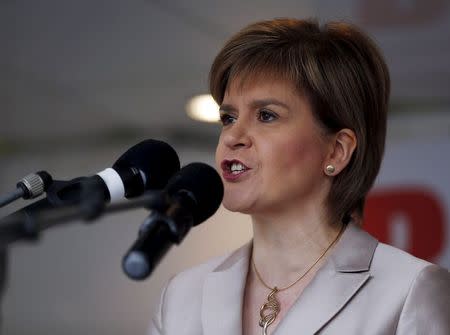Scottish nationalists to seek full fiscal autonomy from rest of Britain
By William James LONDON (Reuters) - Scottish nationalists will try to wrestle full control over taxation and spending for Scotland from the British government if they win kingmaker position in the May 7 general election, their leader said on Wednesday. Though Scots voted to stay part of the United Kingdom in a Sept. 18 referendum, the Scottish National Party (SNP) is hoping to harness a surge in support ahead of a UK-wide election to win more powers from the government in London. With neither Prime Minister David Cameron's Conservatives nor Ed Miliband's Labour Party forecast to win an overall majority, opinion polls indicate nationalists will win 35-50 of the 59 Westminster seats in Scotland, up from six in 2010. "As Scotland's voice in the next House of Commons, if the SNP is there in numbers, we'll be arguing for as many powers to come to Scotland as quickly as possible," SNP leader Nicola Sturgeon said in a televised debate in Aberdeen. When asked by Jim Murphy, the leader of the Scottish Labour Party, whether her lawmakers would vote for fiscal independence next year, she said: "Yes, I would vote for it." Both Labour and the Conservatives oppose a move towards full fiscal autonomy and are instead planning to hand Scotland limited extra taxation powers as part of a joint promise made to Scottish voters before the independence referendum. Sturgeon sought to row back on her comments on Tuesday that raised the prospect of another independence referendum, though she warned a referendum on the United Kingdom's membership of the European Union could trigger another vote. "I'm not planning or proposing another referendum," she said. "Something material would have to change in terms of the circumstances, or public opinion before I think it would be appropriate to have a proposal for a referendum." Asked what that changed circumstance could be, Sturgeon said: "Perhaps if the Tories wanted to drag us out of the European Union against our will." Cameron has pledged to hold an in-out referendum on EU membership by the end of 2017 if he wins a second term on May 7. The Scottish nationalists have ruled out propping up a Conservative government while Labour leader Miliband has ruled out a formal coalition with the SNP. But Miliband has not ruled out a looser agreement whereby SNP lawmakers would support a Labour minority government on an issue-by-issue basis. The outline of any such deal is not public, though Sturgeon has repeatedly said she would not support the renewal of the United Kingdom's nuclear deterrent. A decision on building a new class of nuclear submarines that can launch Trident ballistic missiles with nuclear warheads is due in 2016. Both the Conservative and Labour parties support a renewal of Trident. The nuclear deterrent is an issue of particular emotion in Scotland as Britain's four nuclear-armed submarines are based at the Faslane naval base near Glasgow, Scotland's biggest city. At least one submarine is always out on patrol. "We will never ever vote for the renewal of the Trident nuclear missile system," Sturgeon said in the debate. "It's often asked of me: 'Is Trident a red line?' Well here's my answer: 'You'd better believe Trident is a red line.' We will vote against... on any vote in the House of Commons on the renewal of Trident." (Editing by Guy Faulconbridge)
